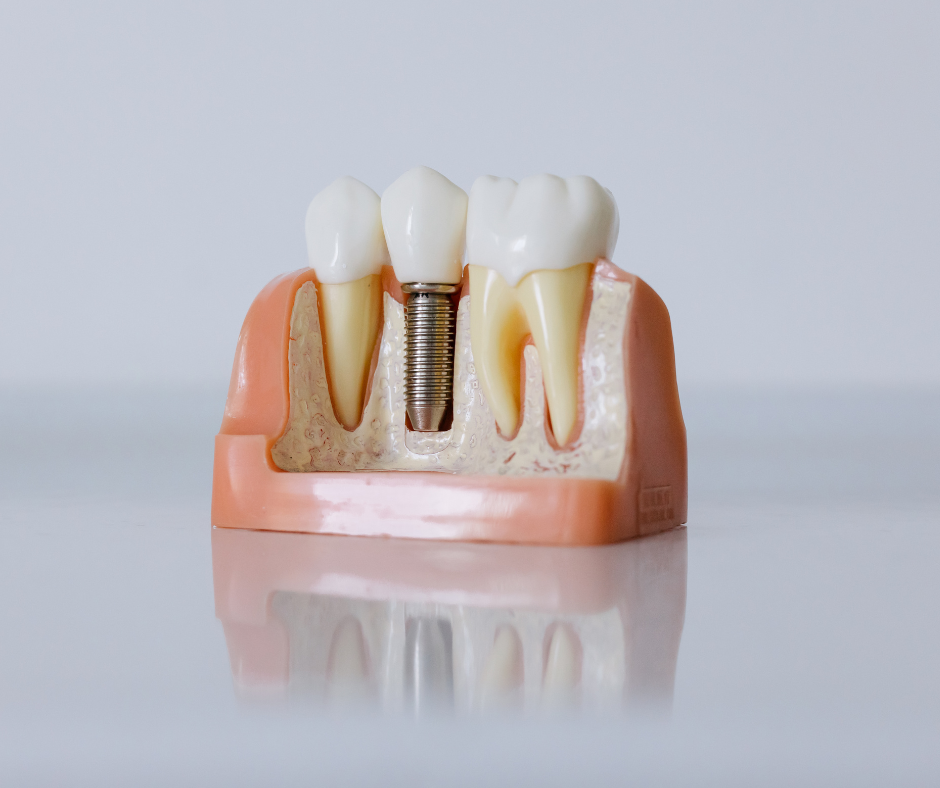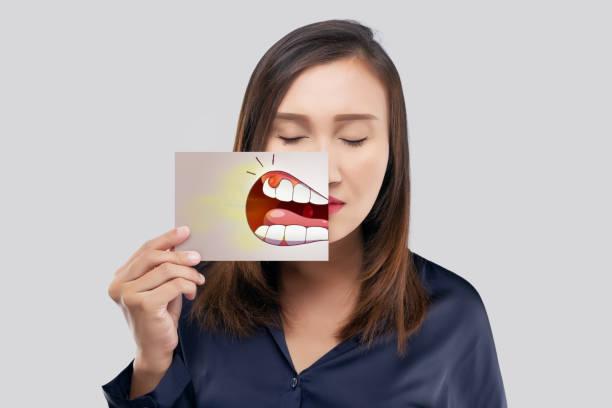Blog
Bad breath, or halitosis, can be an embarrassing problem that can impact both your personal and professional life. In most cases, bad breath is caused by something in the mouth.
Poor Oral Hygiene
Failing to brush and floss your teeth regularly can lead to tooth decay, gum disease, and other oral health concerns that can all cause bad breath. Once bacteria eat away at your tooth enamel, they can begin to irritate your gums and cause inflammation. The odor-causing compounds that result from this process are absorbed into your bloodstream and exhaled through your lungs. Some common causes of poor oral hygiene include failing to brush your teeth twice a day, not flossing daily, not properly cleaning your tongue, and not rinsing your mouth after drinking sugary or acidic beverages. If you suffer from any of these issues, you should talk to your dentist about how to improve your oral healthcare habits. Your dentist in South Edmonton, AB, can recommend a routine that you can complete at home while also providing you with professional teeth cleanings and exams every six months. Regular visits to the dentist can help prevent cavities, tooth loss, and other serious oral health problems that can lead to chronic bad breath.
Health Conditions
If your dentist finds that your bad breath is due to an underlying health condition, they may be able to refer you to a physician for a consultation. For example, persistent cases of bad breath can be a sign of diabetes, kidney infections, liver disease, multiple sclerosis, bronchitis, or chronic obstructive pulmonary disease. If your bad breath is caused by an infection, your physician will prescribe you antibiotics to treat it. With excellent dental hygiene and regular checkups with your dentist, you can prevent bad breath and improve your oral health.
Chronic conditions can also cause halitosis. Cancer, lung infections, and osteoporosis can all cause an unpleasant odor when you exhale. Maintaining good oral hygiene when you have one of these conditions is essential, but it may not be enough to combat the unpleasant smell of your breath. Your dentist may also need to treat your halitosis.
Gum Disease
While poor oral hygiene is one of the biggest causes of bad breath, there are a number of other complications that can cause halitosis as well. These may include dry mouth, acid reflux, diabetes, sinus problems and more! The good news is that all of these conditions can be addressed with proper dental care. If you’re concerned about these issues, be sure to talk to your dentist to identify the root cause of your breath issue.
The mouth is full of bacteria, which normally isn’t a problem because the saliva helps to neutralize the acidity of the oral environment. However, when plaque and tartar build up and cause gum disease, this bacteria will multiply and spread throughout the mouth. This can contribute to a number of health problems in addition to bad breath. If untreated, the condition will only get worse with time, so it’s important to seek help right away to avoid more serious issues.
Some of these issues can be helped with at-home hygiene practices like brushing twice a day, flossing and avoiding sugary foods and beverages.
Food
While brushing and flossing are the best ways to fight bad breath, food also plays a role. Certain foods can linger in your teeth after eating them, leading to stinky breath. For example, garlic is a common culprit because it is high in sulfur. Other foods like onions, cheese, and meat also increase bacteria in your mouth. Mouthwash can be a useful tool for fighting bad odor for those times you can’t get to brush, such as after a meal. Flossing should be done at least once a day to remove food particles that get stuck between teeth and near the gum line. Doing so can also help avoid cavities.
Dry Mouth
A dry mouth can be caused by dehydration, mouth breathing while you sleep, or side effects from certain medications. Saliva is important when it comes to your oral health because it works as a rinsing agent that prevents plaque buildup and neutralizes acids that cause tooth decay. If your mouth tends to get dry throughout the day, make sure to drink plenty of water and chew sugarless gum that contains xylitol. Xylitol has been shown to stimulate saliva production and can significantly reduce instances of gum disease.
By keeping your mouth hydrated with frequent sips of water and staying away from sugary foods and drinks, you can help to encourage saliva production and prevent bad breath. If dry mouth is caused by your medication, talk to your doctor about other treatment options to see if one could be changed to a drug that does not have this side effect.
Tobacco
Smoking cigarettes or using other tobacco products are the most common cause of bad breath. Cigarettes contain tobacco and tar, both of which cause stinky breath and also stains your teeth. Cutting out smoking and other tobacco products is the only way to get rid of your chronic case of bad breath.
You can also suffer from bad breath from chewing tobacco. Chewing the tobacco leaf releases toxins that harm your mouth and cause bad breath. You can typically get this type of bad breath if you’ve chewed tobacco for a long period of time. Quitting the habit will solve the problem.
Tobacco use is another common cause of bad breath. Smoking cigarettes or inhaling secondhand smoke causes dry mouth and a buildup of bacteria in your mouth. The sugar content of tobacco also feeds harmful bacteria and can break down your tooth enamel. Since smoking is such a widespread habit with serious health risks, your dentist in Edmonton, AB may recommend quitting if you struggle with halitosis. If you’re a smoker, be sure to take care of your oral health and visit the dentist regularly for cleanings and checkups.
To get rid of your bad breath, start by avoiding tobacco products altogether. Be sure to brush twice a day and floss once a day. Consider using an antiseptic mouthwash to kill germs and remove plaque. If needed, your South Edmonton, AB dentist might also recommend an over-the-counter treatment like toothpaste that contains zinc. This is especially effective for people who have dry mouth.
Medications
Prescription medications are a very common cause of bad breath. There are more than 400 types of prescription drugs that cause chronic dry mouth as a side effect. When your mouth is dry, you produce less saliva, which makes your breath smell worse. Dry mouth is also associated with gum disease and tooth decay.
Many over-the-counter medications are also to blame for causing bad breath. Antihistamines, decongestants, pain relievers, cold remedies, and sleep aids can cause dry mouth. Alcohol-based mouthwashes can also dry out the mouth and lead to halitosis. It’s important to always read the label for side effects before taking any medications.
When trying to identify the cause of your own bad breath, keep note of the foods you eat, the medications you take, and the activities you do to try and determine the cause of your halitosis. Contact Legacy Dental Clinic, our Best Dental Clinic in South Edmonton, AB, today to schedule your consultation with Dr. Jennifer Nguyen! Call our Edmonton, AB dental clinic at (825) 467-8888.
Location
4224 Gateway Blvd NW,
Edmonton, AB , Canada T6J 7K1
Office Hours
MON10:00 am - 6:00 pm
TUE8:00 am - 6:00 pm
WED - FRI8:00 am - 4:30 pm
SAT8:00 am - 3:00 pm
SUNClosed





